Today was the first day of sixth grade for my eldest! I can’t believe I have a middle schooler. Time goes by incredibly fast. My baby has become a young man:
But this is my annual “What resources are we using?” post, so on to our choices. I will note what is new and what is a hold-over, and give a brief description as to why we are using each this year.
Grammar and Composition
Rod & Staff was a definite purchase. We have used it for the past two years and really enjoyed it, so we saw no reason to change. It really works well for us.
I did give up on a formal progymnasmata program, though. As much as I liked the idea behind it, I just couldn’t find anything that worked for us. We had been doing CAP’s Writing and Rhetoric, but after three books my son could no more write a couple of sentences, or paragraphs, about a trip we had taken or a lesson he had learned than he could before we started. His vocabulary is getting better, but he wasn’t getting any instruction on structure. All of CAP’s products are incredibly well designed graphically, but after using several of their different lines and then deciding against them, I’ve pretty much decided they don’t have the depth I want.
So I’m back with Susan Wise Bauer’s program. It uses some of the ideas behind the progym but seems to structure it much more and goes in depth. It also introduces a lot of different types of writing that I want my son to be doing across our studies. Hopefully this will work for us for a while. He hates the narration exercises, but that is because he needs them so much. They are just difficult for him.
Literature
I had history and literature combined last year, because I was still trying to get my son to enjoy reading. He was not a big fan when we first started homeschooling so we took a year making him read on a schedule but allowing him to make a lot of choices about what he wanted to read. Last year he continued to read on a schedule but we linked a lot of his reading to the history topics we were going over. He has grown to enjoy reading over the past couple years, so we are going to move to a more formal type of literature study this year.
Last year we were aiming for Omnibus after the VP history cards, so our literature study would have been taken care of. Having turned away from that – for reasons I’ll go over in the history section – we knew we needed to come up with another way to do literature. Teaching the Classics seems to be a great way to go. We are going to do a lot less than the thirty-ish selections a year from Omnibus, but TtC allows us to slow down and really enjoy each book we read. It also gives instruction in formal literary analysis that is missing from Omnibus, while preserving our ability to learn through normative questions. We will still do reading for history, but the selections above are the ones we will go through in depth for our literature study.
Latin
Memoria Press returns here because we love it and there is no reason to change. I had my son take a past National Latin Exam at the end of next year and he did well, so this is working well for us.
History
There was absolutely no chance we would change histories this year, as this has become my son’s favorite subject. He really enjoyed the history cards last year and all of the diverse reading that went along with them. This was almost exactly what I had envisioned when I first looked at Truthquest for fourth grade. The Charlotte Mason idea of learning through living books just appeals to me, and I am definitely glad we have grown into it.
The Veritas Press cards have been a fabulous way of easing into it. Instead of me whittling down the topics in Truthquest, VP presents you with 32 topics that you get to go go fairly in depth with. My son isn’t overwhelmed, and he is still getting the benefit of he historical fiction to flesh out and fill in the spaces between the cards, adding a lot of background to what is studied.
So why not Omnibus in the future? Three reasons:
1) I kept reading that, as rigorous and in depth as Omnibus is, its depth is more from theology and philosophy than history. My son really enjoys history, as do I, and we want to be able to go deep with history while weaving the theology and philosophy into the discussions.
2) Omnibus moves at a breakneck pace.
3) Truthquest feels like a more mature version of the VP history cards.
After being able to sit down and spend a couple of hours with Omnibus at a local homeschool store, we decided that it just wasn’t for us. We want a history depth that Omnibus just doesn’t provide. We don’t want the pace of Omnibus just so we can have an impressive booklist at the end. We want to take our time with the literature selections we choose so we enjoy them. We want to be able to follow trails of thought that Omnibus might not address. And we like the way we’ve been doing history and feel Truthquest will allow us to continue this way but at a much deeper level.
Also, Omnibus feels like it is telling students what to think instead of teaching them how to think and then letting them come to the same conclusions naturally. So Truthquest, what we originally started with, is what we are now aiming for. I think it, combined with Teaching the Classics, will give us every bit as rich an experience as Omnibus while allowing us more freedom to structure our studies the way we want, covering the topics that interest us and choosing the books we want to read.
Math
Another subject that stays the same for us. Saxon seems to either be loved or hated, but it is working for us, so we are sticking with it. On a side note, I can’t believe my kid is starting pre-algebra. Wow.
Science
I have just not been able to find a science that I really like. We used Apologia elementary science for a while, and it was okay. The science we used last year, Dr. Jay Wile’s new elementary series, was okay. But none of it has inspired us. None of what we have used has really made us enjoy science. I find myself being drawn more and more to nature studies for the younger years than a formal program. I want something that will inspire a love of God’s creation instead of something bogged down in facts and figures. I want something that will instill an awe of the universe around us. Once that love and awe is there, I think the desire to know the facts will follow.
But I also know most upper level science programs start in 7th grade, which is only one year away for us. I am hoping this series bridges the gap between awe and wonder and a more rigorous study of science. It is very conversational in tone, and the presentation is very engaging, so we’ll see how we like it. The book will only take us 13 weeks to get through. There are other topics to go through if we like this one, or we may end up switching to something else.
Bible/Religious Studies
We really enjoyed the first half of this series last year, so we are sticking with it this year. I think many adults could learn from it. I knew most of the information but it was presented in a way that allowed me to internalize some truths that I hadn’t previously. This series is very well done.
I am also having my son ready a Bible selection daily and then use his composition skills to sum up the ideas in a notebook. We will discuss as well. I am hoping this will get him to start seeing the truth in the Word on his own and lead to some good conversations.
Logic
We are starting a structured logic program this year. From looking through the books I feel it shouldn’t be a problem to get through both in one year, though I am open to slowing down, or even delaying until next year, if he isn’t picking the information up. I want logic and reason to blossom into theology and philosophy in the late high school years, so I don’t want this to be a subject that we trudge through to get it done. I don’t want any of them to be that way, but this one is very important to me. I want my children to be trained to perceive God’s truth in the world around them, and I want them to be able to think through and refute the world’s arguments against their faith. I don’t want them to get into a position when they leave home that they don’t know, or can’t define why, they believe. I want them to have a strong faith, and I also want them to have a well reasoned argument to back it up.
So, those are our choices. What do you think? And what are you using this year?



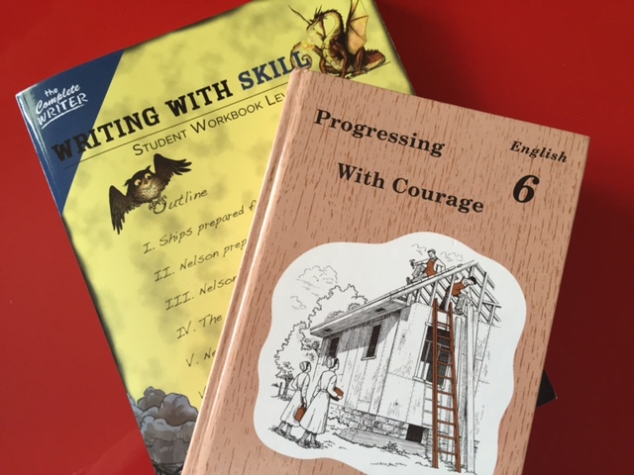
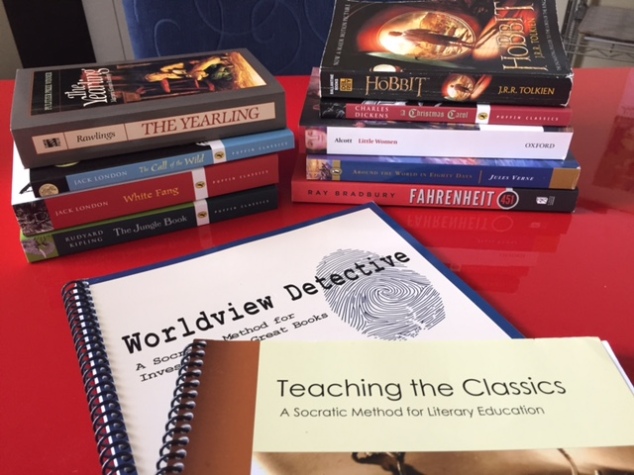
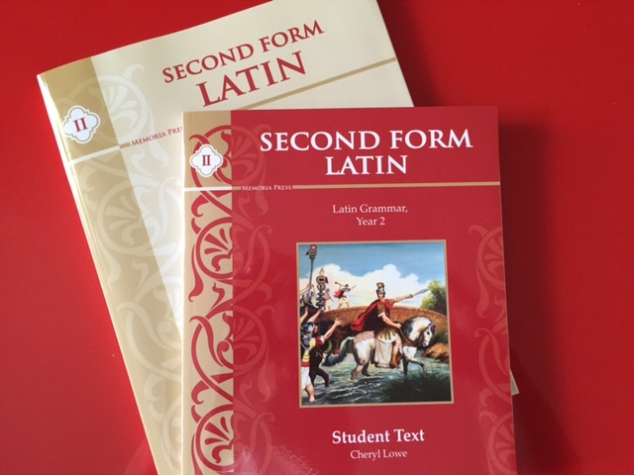
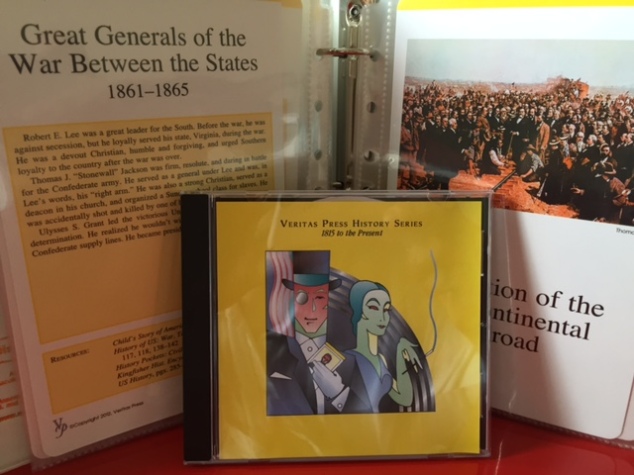
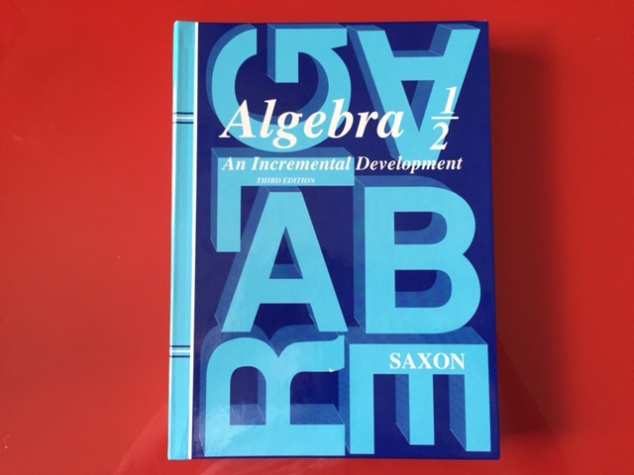
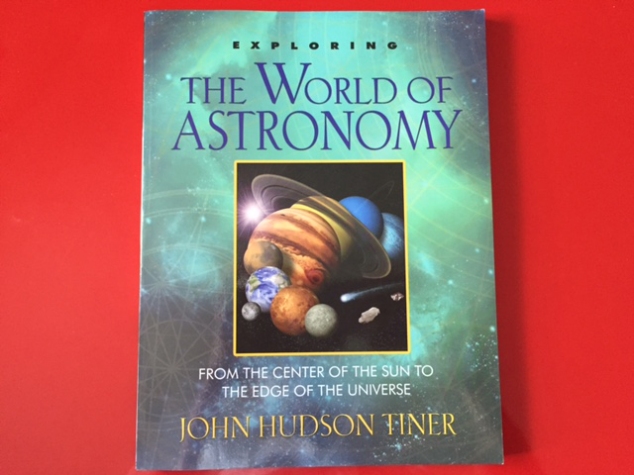
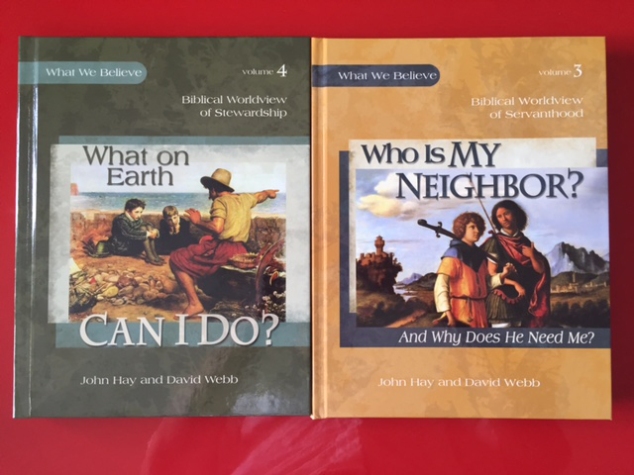
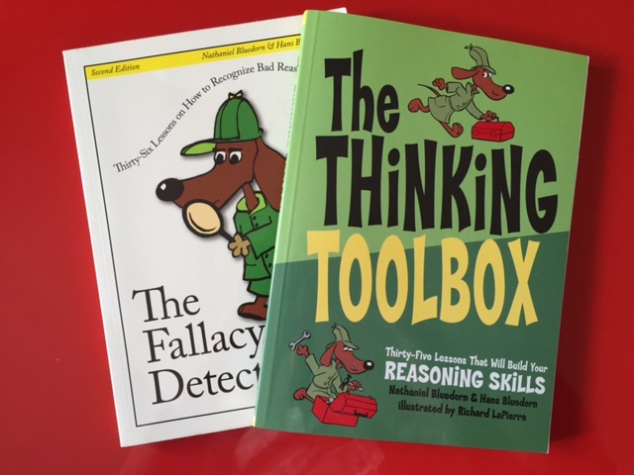
I was wondering if you could share more about what you didn’t like about CAP’s W&R program. I’ve been looking at it for my kids in 3rd and 5th grade and would love some experienced before we make the leap. Thank you!
Honestly, there just wasn’t much instruction. You would read examples of different types of writing each week (for instance, you would read a Fable each week in book 1) and then do exercises. But they never really explained “how” to do it.
The exercises would be things like discussing the pieces (Who was the protagonist? What kind of narrative do you think “X” is?), dictation, summary, and copia (rewriting a sentence by replacing a word or words with a synonym). The separate pieces are good, but there was never much instruction on how to put them all together. The program seems to ask you to absorb the different kinds of writing by reading them instead of giving you instruction on how to make them. I understand the theory, but the four books I had averaged only 10 lessons per form. Without explicit instruction on each form, it wasn’t enough to learn how to do it yourself.
Maybe, if we had stayed with it until the upper levels, it would have gotten better and things would have come together. But my son wasn’t progressing. He needed something with clearer, step-by-step instruction. He needed to have it broken down into concrete steps instead of being asked to make these big mental leaps in style and form just by being exposed to it.
I love CAP’s graphic design. It is beautiful and interesting and fun. But we had already abandoned their Latin materials in favor of Memoria Press, so this was the second thing we struck out with by them. And, after looking at their logic materials, we decided to go elsewhere for that subject as well. My son just doesn’t learn well from their materials. They are definitely engaging but the way they instruct just doesn’t resonate with him.